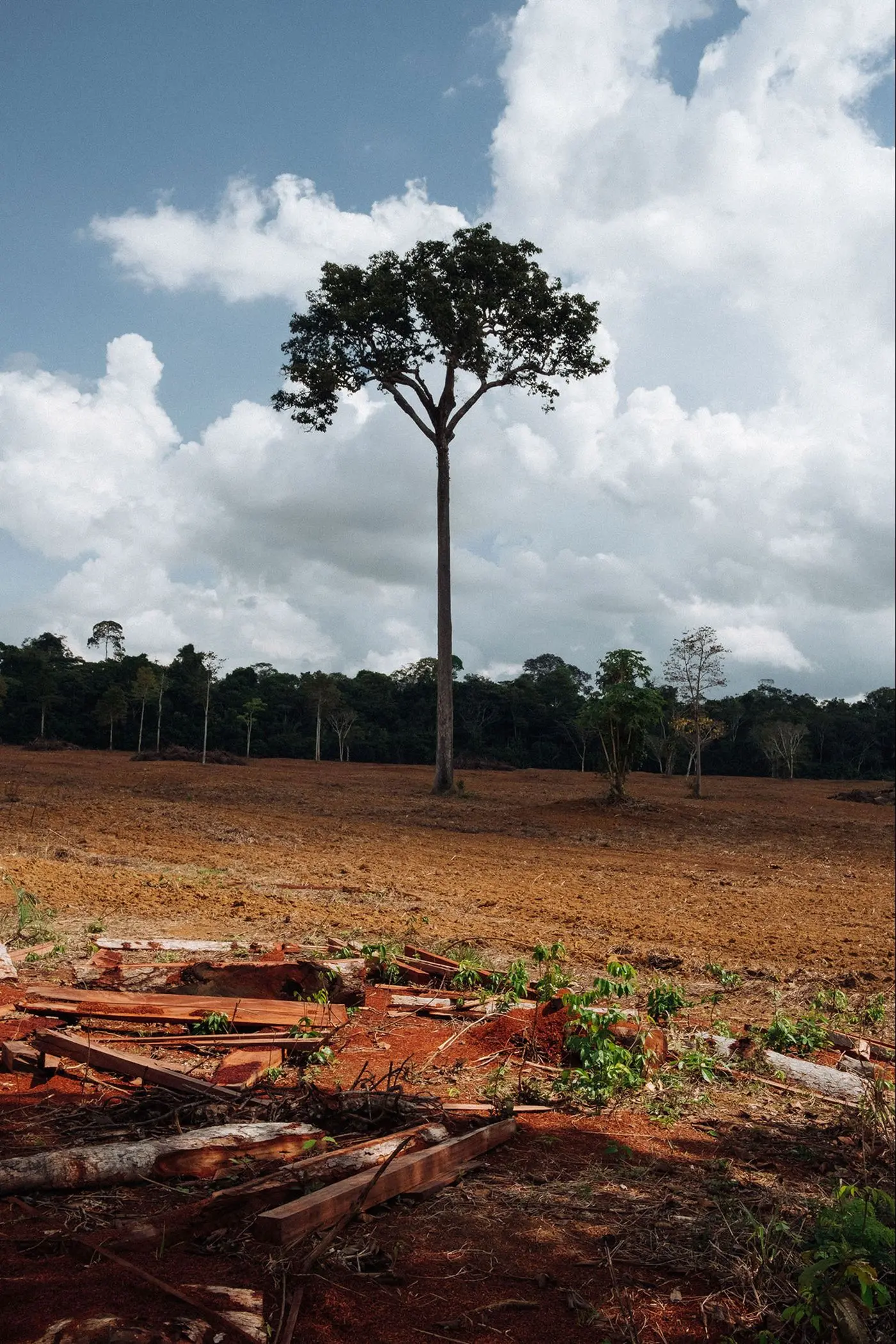
In April, lawmakers in the Brazilian state of Rondônia gathered for a hasty vote in a squat cube of a building that had sat largely empty for months. Few places on Earth had been hit harder by Covid-19 than Porto Velho, the concrete capital city, which, like everything else in the region, has been carved out of the Amazon rainforest. But on that rainy afternoon, while the city was in lockdown, the legislators felt they couldn’t wait any longer.
They needed to pass a bill that would slash the size of a state rainforest reserve known as Jaci-Paraná and another park farther south. Once a vast expanse of sinuous streams and soaring stands of mahogany and castanha trees, Jaci-Paraná Extractive Reserve has been largely transformed into pasture for cattle. Roads cut into the bright red mud crisscross the reserve, connecting hundreds of ranches where 120,000 cattle graze. The ranches are illegal. The new law would change that. The owners would no longer have to hide the origin of their livestock to sell to big beef producers. More important, the land grabbers would have a path to legal title. Almost half the state legislators are ranchers or got elected with agribusiness money. They’d long wanted to wipe the slate clean for their rural base, and now they had support all the way up to the presidential palace in Brasilia.
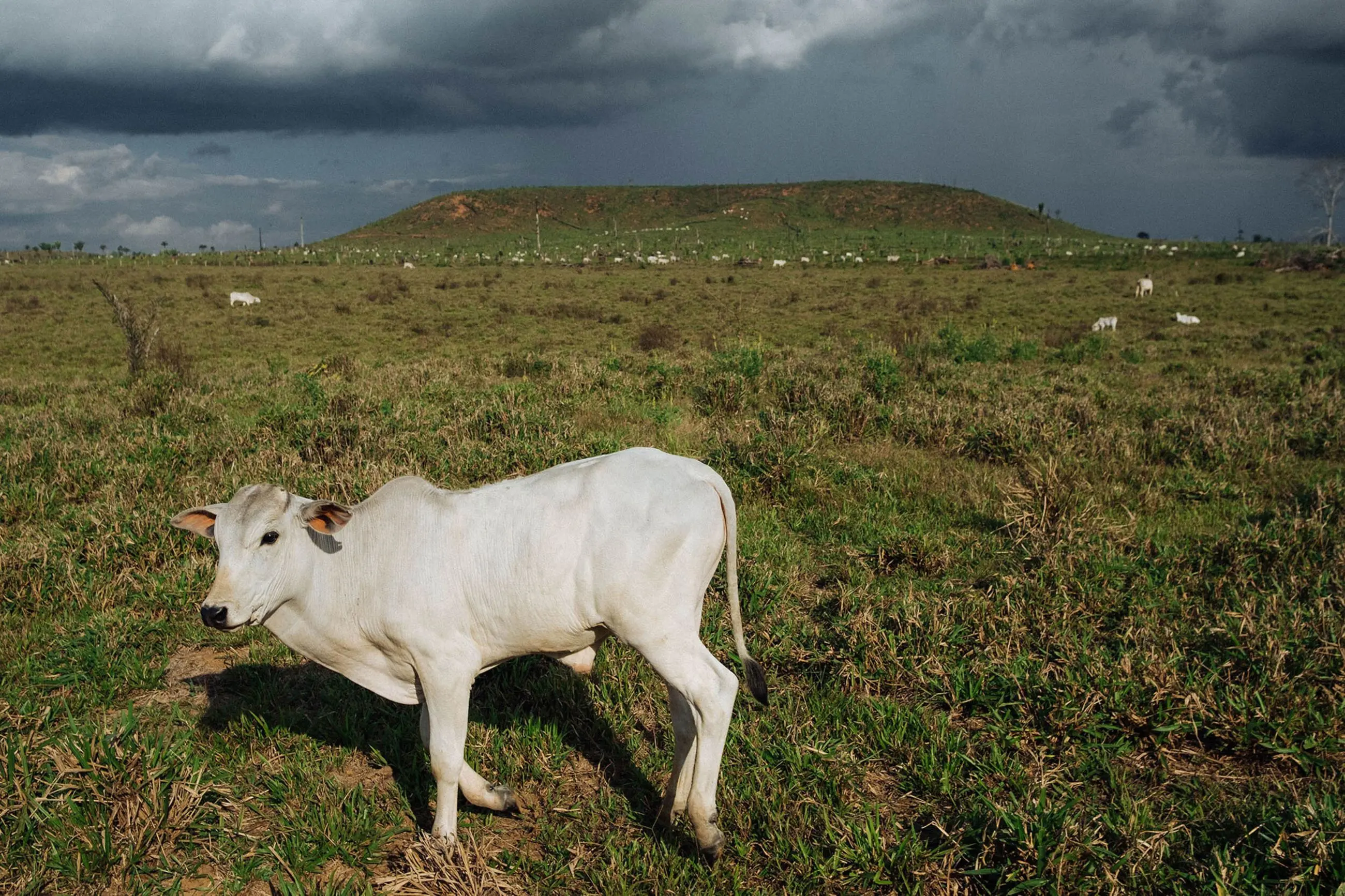
In a few days, President Jair Bolsonaro would appear at a U.S.-sponsored climate summit to defend Brazil’s record on the Amazon. For two years, Donald Trump had been a friend as Bolsonaro dismantled protections for the rainforest. President Joe Biden most certainly would not be. The lawmakers’ plan could fall apart if Biden ratcheted up the pressure. “Listen well,” Ezequiel Neiva, a rancher and lawmaker, told his colleagues. “This is one of our last chances to vote.” The bill passed unanimously. Coronel Marcos Rocha, Rondônia’s governor and one of Bolsonaro’s staunchest allies, signed it into law on May 20. (It’s being challenged in court.) Jaci-Paraná, formerly large enough to swallow Mexico City, was slashed in size by 89%, leaving only a sliver of terrain along its western edge. The other state reserve mentioned in the bill, Guajará-Mirim, lost 50,000 hectares, or 124,000 acres.
Two days after the Rondônia law passed, Bolsonaro didn’t let down the ranchers. He was defiant when he spoke via video link to Biden and other heads of state at the Leaders Summit on Climate. Bolsonaro praised Brazil’s work in protecting the Amazon, while pointing a finger at the developed world’s addiction to fossil fuels as the key culprit in climate change. Above all he lamented the “Amazonian paradox.” The rainforest is one of the globe’s greatest natural resources—in both the commodities it holds and its role in producing oxygen and cleaning the world’s air—and yet most of the 24 million people living in and around it are poor.
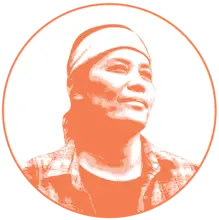
As a nonprofit journalism organization, we depend on your support to fund reporting across the world’s tropical rainforests. Donate any amount today to become a Pulitzer Center Champion and receive exclusive benefits!
“The value of the standing forest” must be acknowledged, Bolsonaro said. “There must be fair payment for environmental services provided by our biomes to the planet at large.” The message to the world was clear: Pay us to leave the Amazon alone, or Brazil will find its own way to extract that value.
There’s ample evidence that the government is already doing that. A review of thousands of public documents and dozens of interviews with prosecutors, forest rangers, and members of Bolsonaro’s inner circle show that Brazil’s government is engaged in an active campaign to open up the Amazon to privatization and development—first by turning a blind eye as public and protected lands are raided and cleared, and then by systematically pardoning the people responsible and granting them legal title to the stolen lands.
Bolsonaro’s government didn’t invent the practice. It’s rooted in the nation’s 1988 constitution, and two presidents before Bolsonaro rammed through changes that essentially amnestied about 25,000 people who’d been squatting on public properties, a review of Brazilian land records shows. But Bolsonaro and his team want to accelerate the process like never before by making it easier for big ranchers to get in on the game. “All that land that’s been cleared in the Amazon, the law allowed it,” says Luiz Antônio Nabhan Garcia, Bolsonaro’s land-policy czar. “That’s how it happened in the United States. It happened in Australia. When colonizers first went out and took that virgin land, all of it came from the state.”
Nabhan Garcia, 63, is himself a rancher. He and his boss came of age during the 1970s, when the military government in Brazil viewed turning the wild expanses of the Amazon into cities, farms, and mines as an imperative of national security. The dictatorship, which endured until 1985, built military bases, power plants, and a network of roadways throughout the thick jungle. Those infrastructure projects fueled what’s known as the “Brazilian Miracle,” a period of 10% annual economic growth that still stands out in many minds as the nation’s golden era. But these were some of the darkest days for the rainforest itself. Millions of people migrated inland from coastal cities, carving homesteads and huge industrial hubs out of the jungle. In 40 years, the Amazon has lost an area as big as California to deforestation. Some scientists suggest the Amazon is now close to a tipping point, at which it will become a savanna rather than a rainforest. It will pump greenhouse gases into the atmosphere instead of pulling them down, and so-called flying rivers—bands of moisture in the air that bring rainfall to the continent—will dry up. As many as 10,000 species may be at risk of dying off.
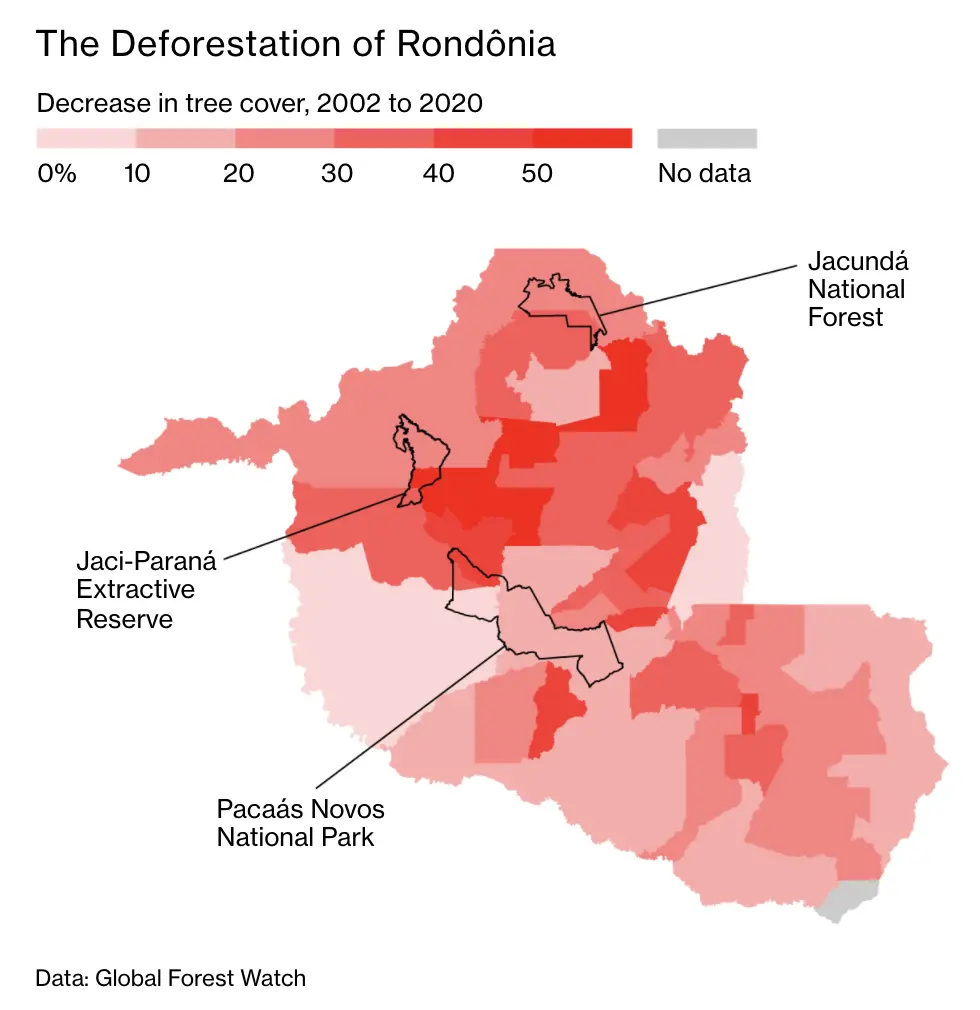
Since taking office in January 2019, Bolsonaro, a former army captain, has revived the 50-year-old worldview that Amazon development and Brazilian prosperity go hand in hand. And he’s stacked key land management and environment agencies with farmers and ranchers who share his vision. Jaci-Paraná is the latest example of that vision’s realization, but it’s far from the only one.
União Bandeirantes, located east of Jaci-Paraná, is a dusty blip of a farming community, a crosshatch of dirt roads and a few dozen structures surrounded by coffee plantations and cattle pastures. A little more than two decades ago, it didn’t exist. No roads. No ranchers. Just rainforest. Today, it’s something of a model for would-be land-grabbers across Rondônia.
Edmo Ferreira Pinto, 49, is proud to take credit for the transformation. Wearing trim jeans and a fitted button-down shirt, he’s intense and energetic as he sits in a trendy wine bar on a recent evening in Porto Velho recounting how he and his friends hacked their way through the jungle and divvied up land that wasn’t theirs. He fancies himself a modern-day Robin Hood who stole from the state to give to the poor. “I still look back and can’t believe we pulled it off,” Ferreira Pinto says.
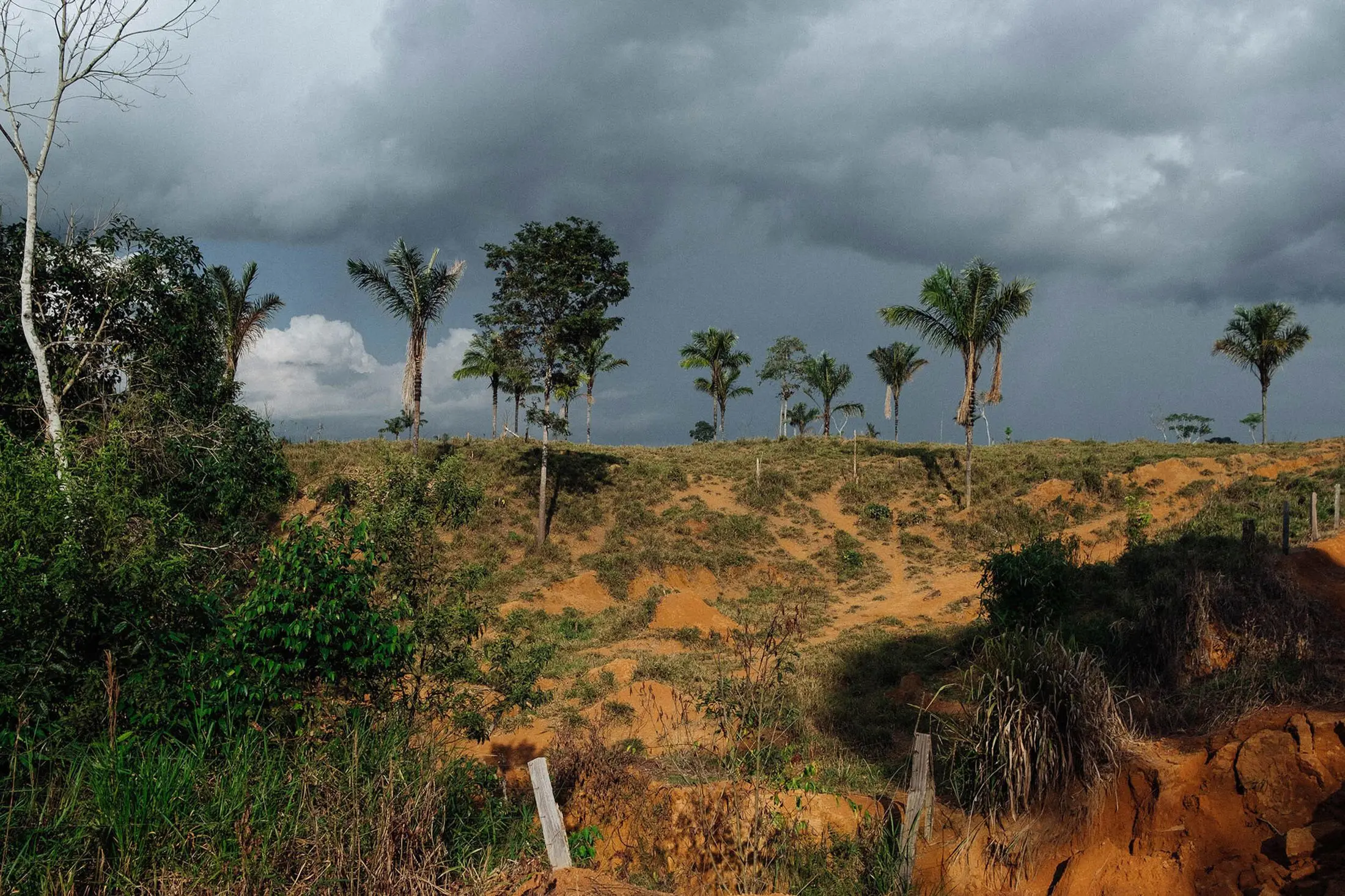
Known as Dim-Dim (pronounced jeen-jeen), Ferreira Pinto was only 12 when he, his parents, four siblings, and two other families piled into the back of an open-air fruit truck and traveled the 2,500 kilometers (1,500 miles) from coastal Bahia state to Rondônia. It was the mid-1980s, and the truck’s owner made a living charging a few bucks per head to ferry migrants such as them to the Amazon. For years government ads on TV and radio and in newspapers had promised plots and prosperity for anyone willing to make the journey. The Amazon was “a land without men for men without land,” the ads declared. Millions answered the call to conquer the “green hell,” and the population of Rondônia swelled from about 115,000 people in 1970 to more than 1.1 million in 1990. Behind the boom was the National Institute of Colonization and Agrarian Reform, or Incra, a government agency the military regime created to speed Brazil’s industrial revolution.
The trip took a week. They sat on wooden benches, a tarp offering shade from the scorching sun. Like the millions of others making their way to Brazil’s Wild West, they followed a highway built as part of a World Bank-backed push to thread roads through the jungle. Once in Rondônia the family moved in with an uncle who’d made the same trek a decade earlier. He’d been rewarded with land, but by the time Ferreira Pinto arrived, everything had changed.
After the military dictatorship gave way to a democracy, Incra was given a new mission. Instead of colonizing the Amazon with industrial farms and factories, the agency was told to reclaim whatever hadn’t yet been developed, dice it up into tiny lots, and hand those out to Brazil’s poor for subsistence farming. It was one of the largest social welfare giveaways of all time. But the execution was bungled. No longer backed by the power of the military, Incra couldn’t enforce its rules when conflicts over land broke out. People rushed to claim whatever plots appeared to be free. Wealthy owners stripped of their properties fought in court to save their stakes, tying the land up for decades. Documents were easily forged or altered to make bogus titles look legitimate. A resale black market for the dubious claims proliferated. Some falsified documents have now changed hands so many times that it’s impossible to determine the real owners of some parcels.
A decade after they arrived, Ferreira Pinto’s parents found their way to an Incra settlement on a massive farm that had been granted to a conglomerate during the dictatorship, then confiscated after the company failed to develop the land. Ferreira Pinto looked around at people who’d been there for years. They were still living in tarp-covered shacks without water or electricity while waiting for Incra to tell them which plot was theirs. “You see that, and it hurts,” Ferreira Pinto says. “I don’t think my father ever really let it get to him, or at least he didn’t show it. But me, it hurt.” By then he and his friends, who’d also come with their parents in search of land, had been waiting for most of their lives. When they heard about a strip of terrain standing free to the east of Jaci-Paraná, they hatched a plan.
On Dec. 3, 1999, which locals still remember as an independence day of sorts, Ferreira Pinto and three busloads of people drove to the edge of the rainforest and set up camp. They built small huts, then started cutting out roads, knocking down trees everywhere they went. It took a year to hack through the rainforest to the spot that is now the heart of União Bandeirantes, which translates as Pioneers Union. Along the way they recruited topographers, lawyers, builders, and administrators, all of them eager to fill the vacuum left by the government—and grab a slice of public land for themselves. Ferreira Pinto was arrested twice for conflicts and invasions but was never convicted of a crime. In the end, he estimates, his group settled some 1,800 families. Current law allows anyone who developed land as recently as 2008 to apply for amnesty. The people of União Bandeirantes made a bet, and it paid off.
“It used to be pure rainforest. I tore it all down”
Everaldo Pandolfi
Everaldo Pandolfi is sitting on a brown horse at the intersection of two dirt roads, watching his son tend to cattle in a fenced-in lot. “That’s all his now,” Pandolfi says as he points to a sweeping field in front of him where the jagged teeth of torched tree stumps still poke out from the tall grass. Behind him is a plot he transferred to his daughter; to his left is a field owned by his other son. Combined, they add up to more than 200 hectares. “It used to be pure rainforest,” he says. “I tore it all down.”
An original settler of União Bandeirantes, Pandolfi, who’s 51, paid 250 reais (about $80 back then) to a surveyor working with Dim-Dim to mark his future farm. From there he followed a familiar playbook: First he went for the majestic hardwoods, hundreds of years old and as much as 11 feet in diameter. They brought in fast cash from exporters. Then he torched the land to clear the scrub, before planting a weedy grass that is a staple in cattle diets. Eventually he built a small house, with two fish ponds and a pen for pigs out back. In a few more years, the burned tree stumps may break down enough to make way for the payday: coffee or soybeans. “That’s the dream,” a neighboring farmer explains. In the south of the state, where big farmers reign, the shift to soybeans is already under way. But for that you need investment: irrigation, machinery, and fertilizer. The little guys rarely get there.
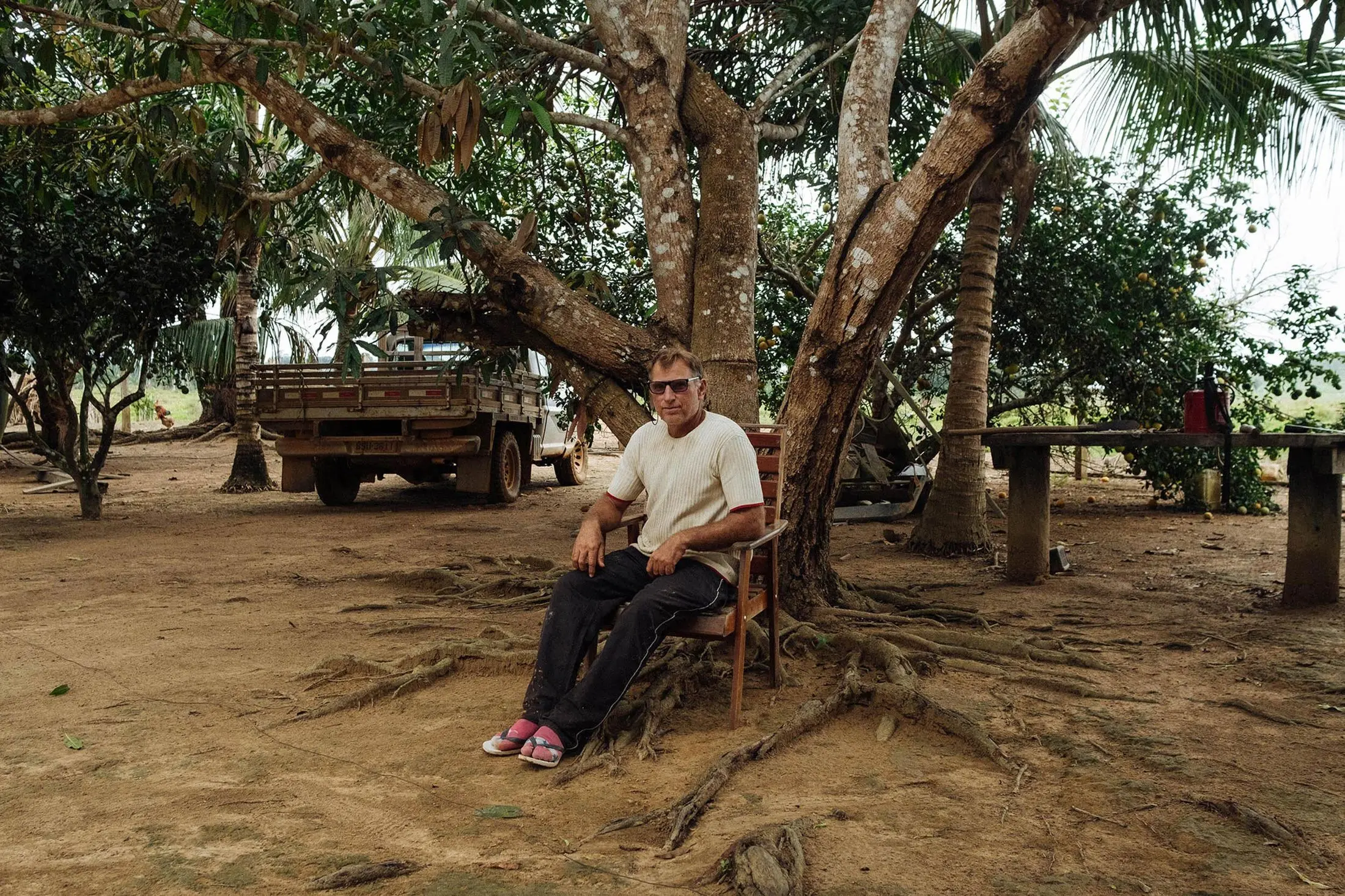
The Brazilian Institute of Environment and Renewable Natural Resources, the federal regulator known as Ibama, knows all about the deforestation, but doesn’t do much to stop it. A study by the independent news site InfoAmazonia found that between 1980 and 2019, Ibama issued 75 billion reais ($14 billion) of fines, adjusted for inflation, but collected only 3.3% of the total. Pandolfi has himself been fined three times, adding up to 600,000 reais. He doesn’t plan on ever paying it. “How can I?” he asks, sitting barefoot on his porch late in the afternoon, with a straight-shot view of rainforest territory set aside for indigenous people. Blond and tan, Pandolfi is unassuming and a little bit goofy, curling his legs beneath him as he breaks down how he gets around the fines in order to sell his cattle to big beef producers, whose policies prohibit them from buying from deforesters. “I took everything out of my name,” he says. “My car, my house, the land.” He sells cattle to one of the biggest slaughterhouses in the area by registering the transactions in another rancher’s name. It’s a well-known practice. Laundered beef has been found in the supply chains of meatpackers JBS and Marfrig Global Foods, and the supermarket chain Carrefour. These companies say they vet direct suppliers extensively, and that such cases represent a very small portion of their beef purchases.
It would be easy to think of Pandolfi as a villain, a callous land-grabber who blithely destroyed a patch of precious rainforest. But he and his neighbors paint a picture in which policy, poverty, and the world’s insatiable demand for commodities all pushed them toward the choices they’ve made. The only way to get credit from lenders is to use cattle or land—even untitled land—as collateral. Global markets don’t buy enough sustainably produced foods such as Brazil nuts or acai to keep people afloat, whereas the appetite for beef, grains, and timber seems bottomless. (In 2020, Brazil exported $35.2 billion of soybeans, soybean meal, and soybean oil, and only $128.3 million of nuts.) Meanwhile, politicians, from local council members all the way up to the president, encourage the destruction. A cross-check of political databases and Ibama fines shows almost 1,000 elected officials and political appointees are on government blacklists for environmental crimes.
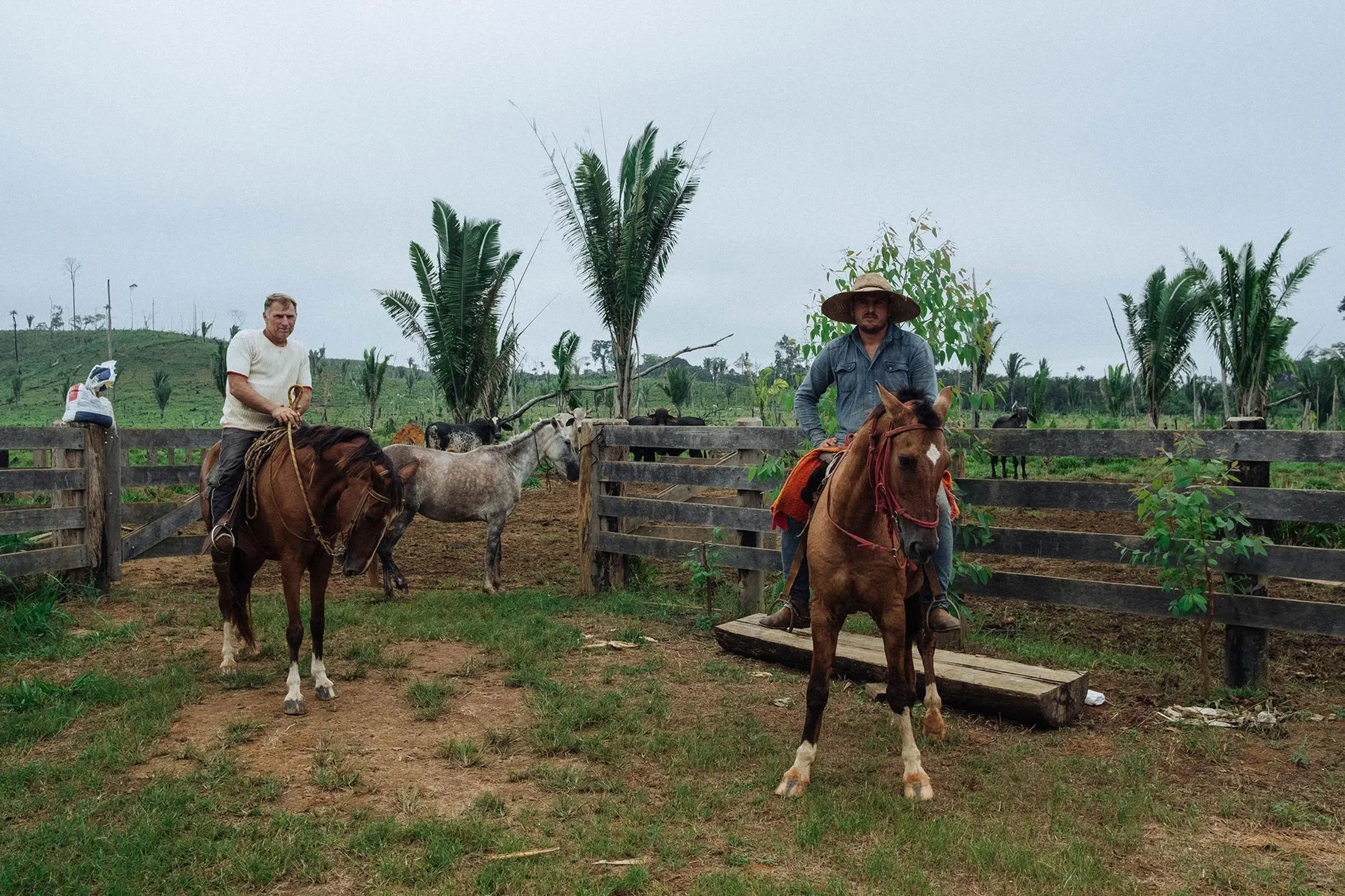
It’s poverty that truly drives the calls to develop the rainforest, from both the left and the right. Thirty percent of Brazilians live in poverty, including 13% who survive on less than $2 a day, according to the World Bank. In the country’s north, where the rainforest is, poverty is especially dire: Clean water, sanitation, and electricity are luxuries. Almost one-third of the population is functionally illiterate, unable to meet day-to-day reading or writing needs. The Covid pandemic became just one more item on a long list of scourges that includes malaria, dengue, and Zika.
The commodities boom in the mid-2000s brought a wave of prosperity that few Brazilians had experienced. The crash a few years later dragged down everyone. Today, prices are again surging, and with them, schemes to grab even more land. Only now the schemes are more daring, more organized, and a lot more violent.
Carlos Rangel da Silva hikes into the Pacaás Novos National Park in central Rondônia, leaving behind the waist-high grass and searing tropical heat of a cattle pasture for the cool shade of the rainforest canopy. Suddenly he stops, pointing his machete at something ahead. The eight armed police officers and three park rangers in his entourage freeze, waiting for his cue. He motions to a lightly trampled patch of grass and, farther out, a faint track across the red dirt. “A motorcycle,” he says. “Could be someone going after timber or scouting the area.” The lead ranger breaks off to check it out, trailed by two police officers, their assault rifles ready.
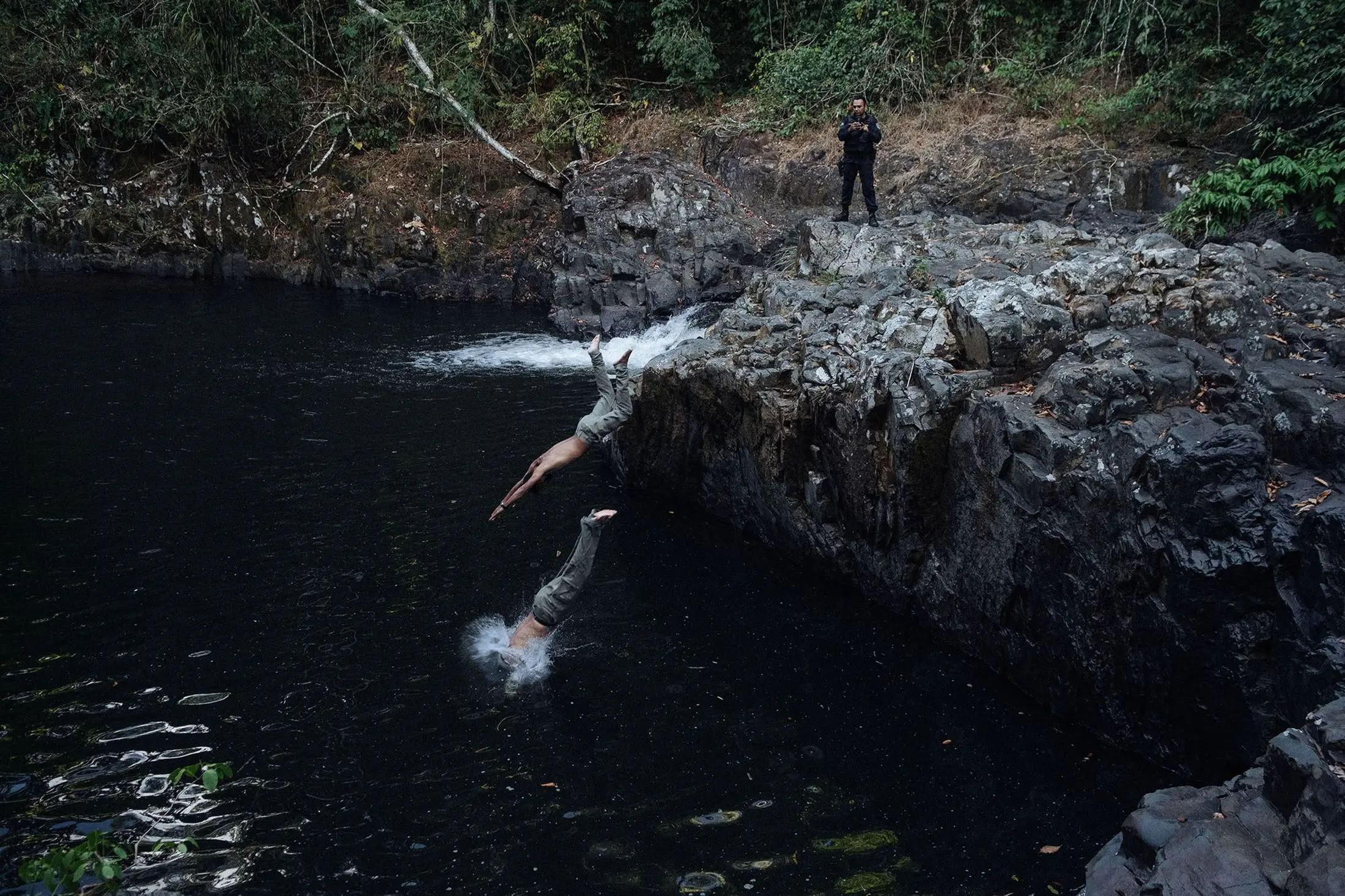
It turns out to be nothing, but there’s a reason Rangel is on high alert. Informants had been warning that land-grabbers were massing for another assault on Pacaás Novos, a vast national park that’s home to a stunning half-moon-shaped canyon, towering cliffs, and plunging waterfalls. The preserve overlaps the territory of the Uru-Eu-Wau-Wau, an elusive indigenous tribe that didn’t make contact with the outside world until the 1980s and still keeps its distance. On paper, being both a park and a reserve for indigenous people gives the preserve two layers of protection under Brazilian law. “But that doesn’t mean much, especially these days,” Rangel says.
At 72, Rangel may be the oldest park superintendent in Brazil. His team consists of nine firefighters who double as rangers, patrolling a park twice the size of Rhode Island. He’s been in the job for 20 years and fantasizes about retiring and writing the next big Brazilian bestseller. But the names his bosses in Brasilia put up to replace him, he says, are a joke; they want to bring in a bureaucrat. The work is physically demanding, requiring Rangel and his rangers to hack their way through the jungle and sleep in tents, among the poisonous snakes and the mosquitoes. “You need someone who will fight,” he says.
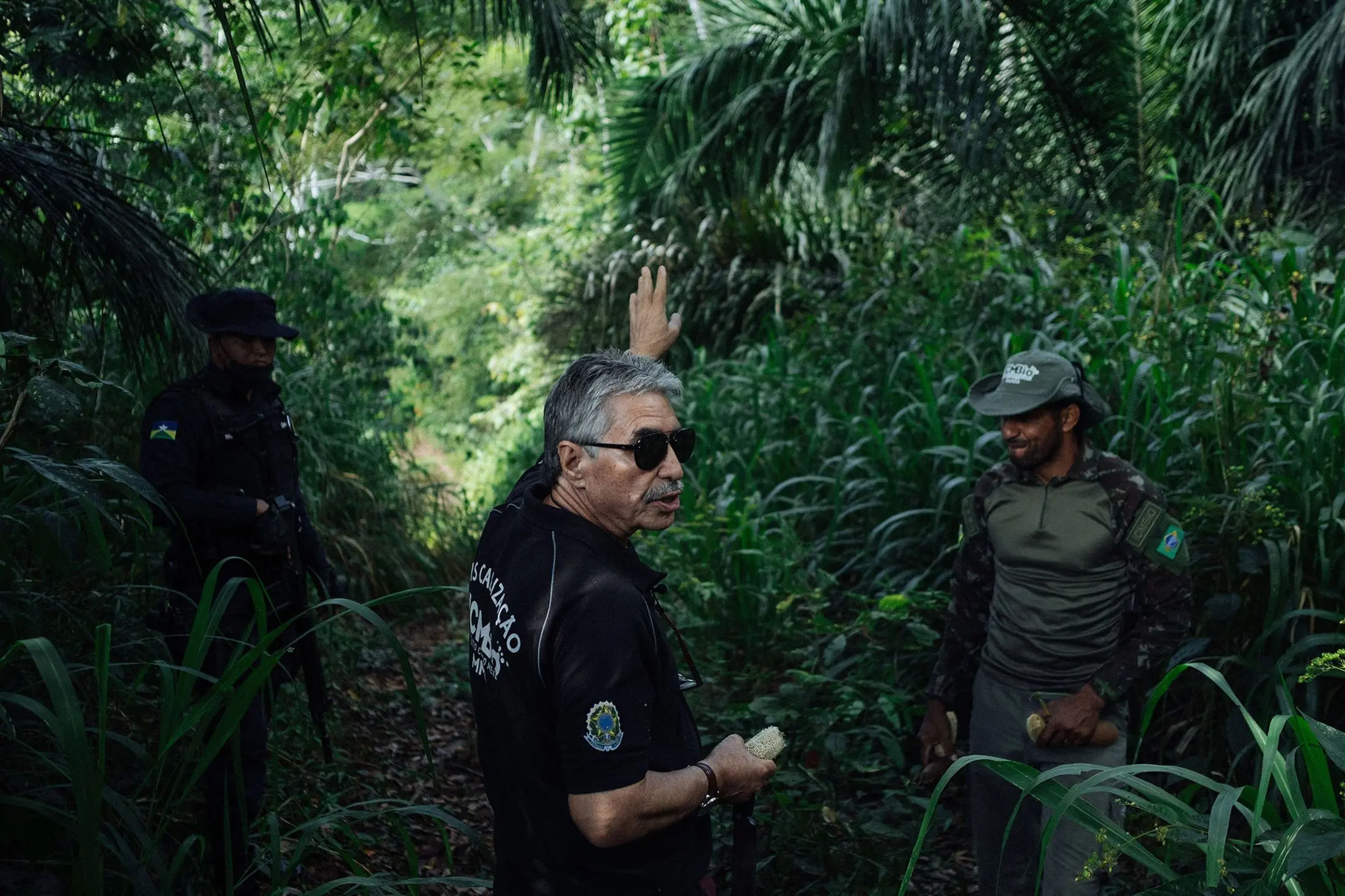
A few years back, Rangel discovered an especially well-organized push to claim 60,000 hectares of park. It was led by a local rancher named Stable Queiroz, his two brothers, and a 92-year-old grandmother named Victoria Pando de Souza, according to a criminal complaint filed in federal court. Pando’s family had been granted permits to tap rubber in the park in 1917, and the crew argued that those documents gave them the right to buy and sell the land. According to the complaint, they tried to divide the park land into small plots to sell to anyone who wanted a farm. They hired a lawyer to create an association and sent people into the park to build a sales office. Hundreds of potential buyers—mainly impoverished farmworkers in the area—jumped at the offer. Queiroz dreamed of creating a new farming town to be named Rio Bonito, or Beautiful River; he would be its de facto mayor.
Federal officials monitoring satellite images in Brasilia tipped off Rangel. A skilled logger with a chainsaw can cut through more than two hectares a day, and Queiroz had a whole team. The destruction was spreading quickly. For months, Rangel plotted raids from his office in Campo Novo, a remote town of about 14,000 people where rangers and deforesters live side by side.
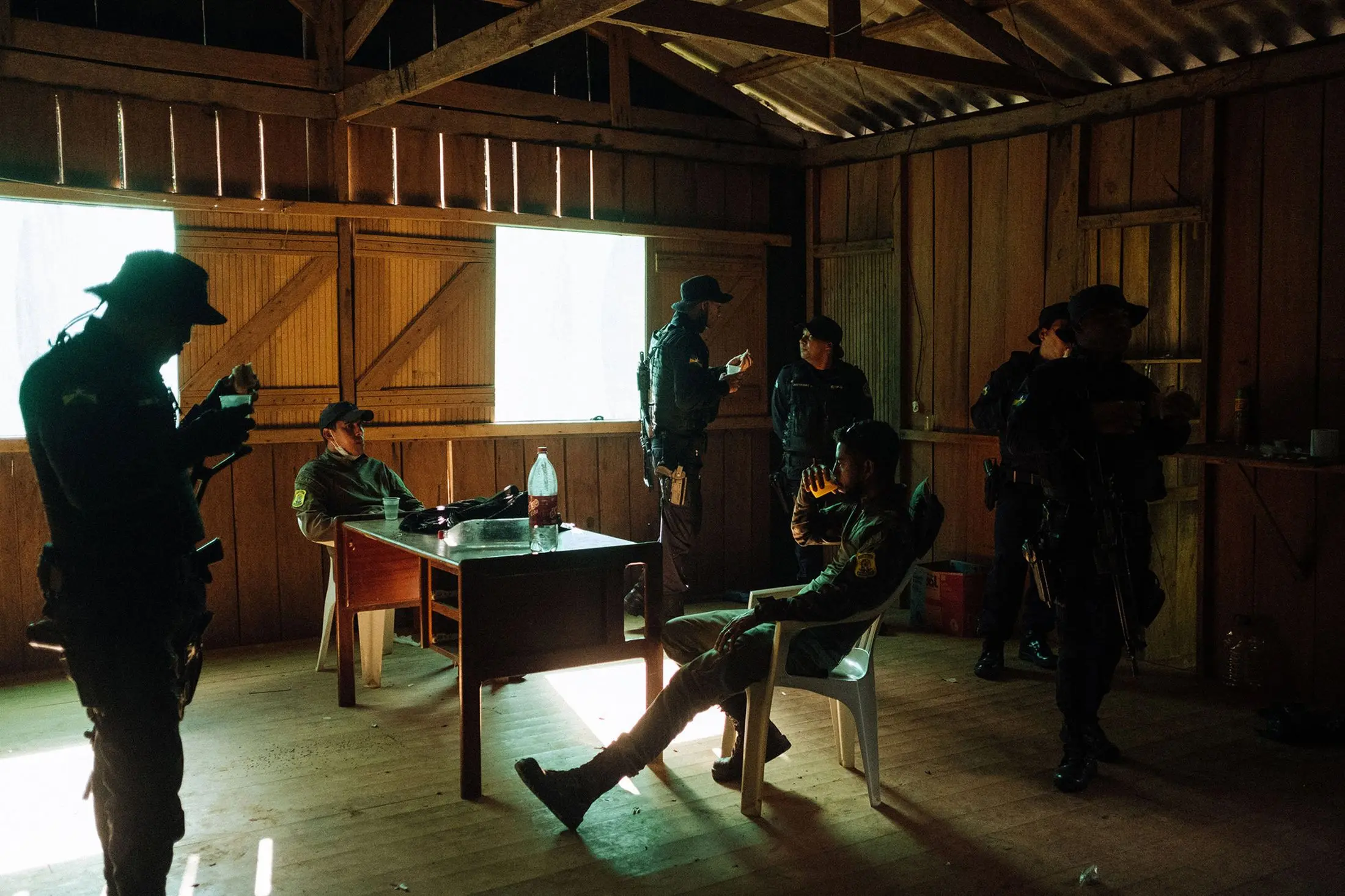
Rangel mustered a few police patrols, made up of junior officers who volunteered in order to make an extra 180 reais a day. Any time they ventured out, they were met with threats and intimidation. “From now on, it’s going to be fire and steel,” Queiroz warned in a voice message that was cited in court papers. “From now on, you will respect us, or you will suffer the consequences.” It took 12 hours to drive 20 kilometers over rutted and roadblocked trails to where the illegal loggers operated, and once they got there, it was all too easy for the gang to flee into the thick jungle. Once, after Rangel and his team managed to arrest someone, Queiroz and about 30 others ambushed them on the road back to Campo Novo. They carried Molotov cocktails and surrounded the police vehicles, threatening to set them on fire if they didn’t get their man back, according to sworn statements by Rangel. The standoff lasted an hour before Rangel and his lead ranger talked Queiroz down. But they did give up the prisoner.
The complaint against Queiroz and his associates was filed in October 2019. They denied any wrongdoing. They were let out of jail in the spring, before their trial, when the government emptied cells because of the pandemic. They’ve been ordered to stay far from the park. But if there’s one thing the past 20 years have taught Rangel, it’s that there’s always someone in the wings, waiting for the guards to look away.
While the group chanted “Land, land, land,” the outnumbered officers climbed back into their vehicles and drove off.
Under the glaring sun, several watchmen with walkie-talkies take cover in two shacks. A rope dangling between the shacks forms a makeshift gate to the Jacundá National Forest, a 220,000-hectare preserve that’s become a flashpoint in the war for land. Past the rope, a dirt trail dips into a narrow valley, where a river meanders under a sturdy bridge built with slabs cut from giant logs. Children jump from the bridge into the water, while two women fish with a green plastic net. A half-dozen more wash clothes a few meters downstream. The trail climbs back up into a camp called Terra Prometida, or Promised Land, where 200 families have settled inside the protected jungle.
At the entrance to the camp, Fernanda Santana, 20 years old and 8 months pregnant, lounges in a white plastic chair inside a two-room hut with palm leaves covering the roof and walls. She has straight brown hair that passes her shoulders, acrylic nails, and a calm conviction. In the room next door, a mint-green dentist’s chair and equipment stand idle. Outside, men are constructing a clinic to house it all.
The camp sprouted up fast. In the five months since the land-seekers arrived, they’ve built a church with a loudspeaker and a couple of hundred huts, identical in design and arranged in an orderly grid. There’s an internet tower, a generator, a schoolroom, a vegetable garden, and showers for the women. (The men bathe in the river.) In a cantina, a half-dozen cooks prepare a lunch of rice, beans, beef, and vegetables in dented steel pots over wood fires; their work schedule is posted on a tree trunk supporting the roof. The pantry is packed with food bought in bulk. Asked how they pay for all this, Santana says everyone pitches in with whatever they have. When the meal is ready, one of the women steps outside and hollers. Dozens of residents hurry over carrying plastic bowls and plates.
Santana has known many of these people her whole life. She’s from a small village outside the park, now drained of its people. “Everyone came here,” she says. To the villagers, Jacundá and its vast, untouched jungle felt like an affront. For nights they’d camped out in the fields at the edge of the park, debating strategies while waiting for enough families to join them before going in and staking a claim. They figured the more people at the outset, the easier it would be to resist eviction. And they were right: A few months after they settled in, police rolled up and ordered everyone to leave. The residents assembled on the narrow road, crossed the log bridge, and met the officers head-on at the checkpoint. While the group chanted, “Land, land, land,” the outnumbered officers climbed back into their vehicles and drove off.
Brazil’s deforestation machine is complex, and it’s impossible to know exactly who’s directing its movements. A large part is certainly driven by the everyday Brazilian who longs for land, but that alone can’t explain the sheer scale of the destruction or the recent sophistication in the attacks. A few decades ago, when undesignated government land was bountiful, it was easy for a lone farmer to drive some stakes in the ground and claim it as his own. But those plots are gone; what’s left in Rondônia are protected parks and territories. Environmental-crime prosecutors now describe a fraud that turns poor Brazilians into foot soldiers for criminal gangs, logging companies, and industrial farming operations. It’s the stuff of novels, the type of book Carlos Rangel dreams of writing if only he could retire. “The people on the ground don’t have the financial wherewithal to pay for the kind of operations you see,” says former state prosecutor Aidee Maria Moser Torquato Luiz, who tried for two decades to stop the land grabs in Jaci-Paraná before finally giving up and moving away from the Amazon. “Someone is bankrolling them.”
At the core of the scams is the byzantine land-management system Incra left standing in the chaotic transition from dictatorship to democracy. “There’s a huge discrepancy between reality of fact and the reality in our documentation,” says Tatiana de Noronha Versiani Ribeiro, the lead federal prosecutor on the Queiroz case. “Criminal gangs figured out how to mine the documentation and exploit the confusion.” First, the gangs comb through public records, looking for loopholes such as Queiroz’s 100-year-old rubber-tapping permits. Then, with phony paperwork in hand, they recruit desperate families and convince them the land is up for grabs. They bus them out to remote reserves, promising to pay for supplies and food. The claims are always challenged in court, but they sit in legal limbo for years. By that time, the camps have grown into villages, and it gets more politically complicated to evict hundreds of families with children. All the while, the masterminds are raiding the forest of its hardwood. When they’re done, they move on to their next target. Many of the families can’t make it on their own and end up abandoning the land they fought so hard for, or selling it cheap to big farmers amassing soybean and ranching empires.
At Terra Prometida, Santana says the camp has no leaders. “These people just want what others have.” People arrive daily to join them, from all over. One of the guards, a man in his early 50s with wire-rimmed glasses, journeyed with his family from Venezuela, a country in complete collapse. The head cook at the cantina, a woman from Porto Velho named Elisangela (she didn’t want to give her last name), says she’d been waiting her whole life for this opportunity. “As soon as I heard about it, I left everything behind,” she says. Many learned about Terra Prometida from WhatsApp groups. A few made the trip after watching the camp’s YouTube channel.
They plan to carve up the jungle into 20-hectare plots for family farms and say they have every right to be there. As proof, Santana is eager to show off a crumpled steel marker, drilled into the earth in the backyard of one of the huts and stamped by Incra: Tract 4, Mark 7. It may have been part of a settlement once or a marker when the land was surveyed, but it likely lost any validity when the park was created. Across the camp, there are signs of cut logs and patches of scorched earth. Satellite images compiled by Global Forest Watch show hot spots of tree cover loss all around. Santana acknowledges the jungle is being stripped of its hardwoods but says the settlers aren’t the ones doing it. “There’s a big sawmill nearby,” she says. “They’re using us as an excuse.”
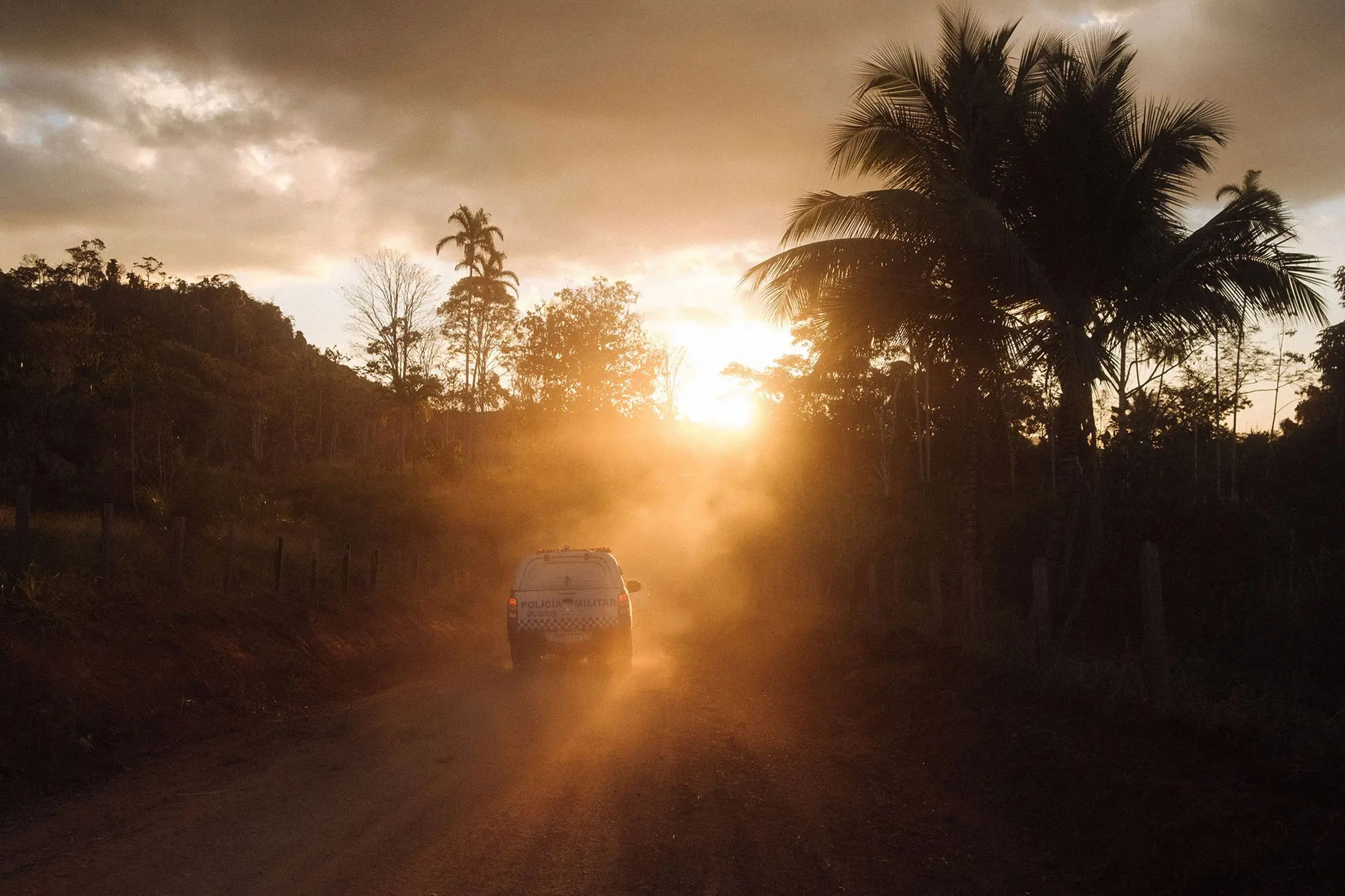
Nabhan Garcia, Bolsonaro’s land-policy czar at the Ministry of Agriculture, is a stout fast-talker with a bushy mustache and a penchant for khaki hunting vests. On a June day, he walks into a barbecue for ranchers at the Ji-Paraná fairgrounds in Rondônia, and the crowd gathered under a long ramada whoops and cheers. The dirt parking lot is brimming with four-wheel-drive Toyota Hiluxes and Ford Rangers and, next to it, a row of 10 forequarters of beef slowly roast over a bed of coal. In the crowd are politicians, mining executives, and ranchers who’ve expanded into solar power and construction. In one of the world’s most unequal societies, these are the guys who’ve made it big, who’ve built empires—who, as Nabhan Garcia tells them, “carry Brazil on your backs and sustain it with your sweat.” Some boast of properties in the tens of thousands of hectares, which is possible only if they were granted during the dictatorship or pieced together from failed smaller farms, or are untitled land grabs. These are the guys Bolsonaro wants to boost.
Under legislation the president introduced in 2019 that’s now making its way through Congress, industrial-scale farmers may for the first time be able to get in on the legal land laundering and win clean titles to public tracts that were originally intended for settlements or reserves. The proposal opens the door to more farmers sitting on properties between about 300 hectares and 2,500 hectares. All combined, that’s an extra 16 million hectares of Amazon land that could soon be titled, including properties that were deforested as recently as 2012. The most dangerous change, however, according to Raoni Rajão, a land-management and environmental policy expert at the Federal University in Minas Gerais, is that the government wants to make it a no-check process, meaning Incra officials will no longer be required to go out into the field and inspect the properties before issuing titles. They’ll rely only on satellite images. “It works for the land-grabbers to not have Incra doing its job,” Rajão says. “It becomes an incentive to keep stealing land.”
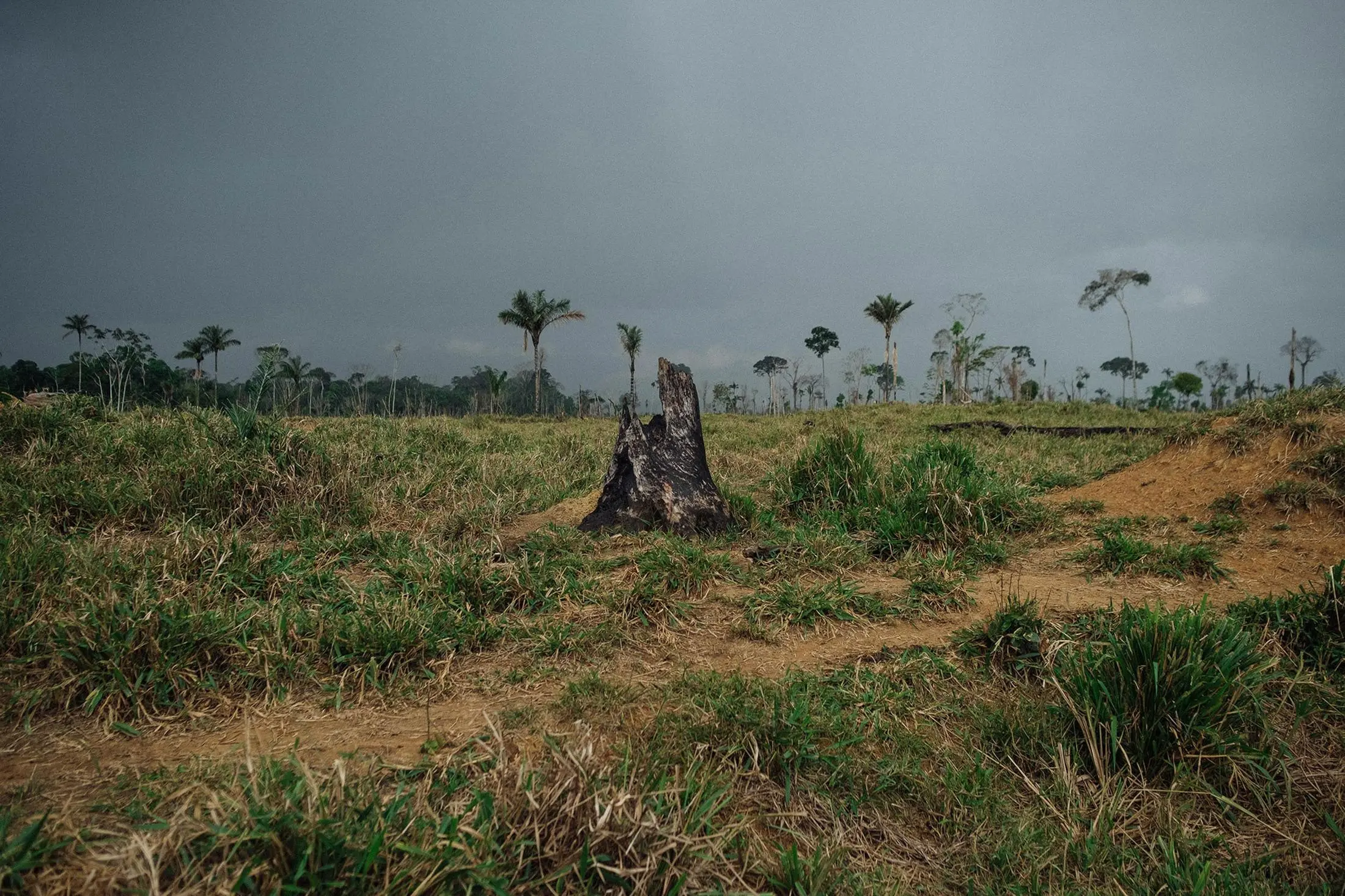
How to Become an Amazon Rancher
1. Find a piece of open public land.
2. Chainsaw through the big trees and sell them for quick cash.
3. Torch the rest to clear the scrub; plant grass.
4. Get some cattle to graze the land.
Did the environmental regulator catch you?
Yes: Register everything under someone else’s name and to a different piece of land. That’s usually enough to fool the meatpackers.
No: You’re free to sell to the big beef producers.
Is your ranch on protected land?
Yes: Ship your cattle to an outside farm, even if the stopover is just for a few hours. From there, they can go to the slaughterhouse and no one is the wiser.
No: You’re free to sell to the big beef producers.
5. Register your land grab with Incra and ask for title. If you’re not yet eligible, have patience. Lawmakers have moved the needle twice on who qualifies for amnesty and they’re trying to do it again.
As special secretary of land affairs, Nabhan Garcia is leading the charge to rally support for the bill. With no previous political experience other than a failed congressional run in 2006, he’s managed to amass an almost cultlike following among his fellow ranchers and an impressive level of influence with the president. The two bonded during Bolsonaro’s 2018 campaign over a shared love of guns and disdain for foreign governments they say are threatened by Brazil’s agricultural prowess. “Behind it all—all the lies about the Amazon—is a dirty war fueled by geopolitics and hypocrisy,” Nabhan Garcia says. “No other country in the world has the potential to boost production the way Brazil does, and that scares people.” Arguments such as this one are a common thread at the luncheon in Ji-Paraná. One rancher talks of a powerful milk and cheese industry in southern Brazil that doesn’t want competition from the north; another says American soybean farmers, unhappy that their Brazilian counterparts picked up the slack and undermined the U.S.’s trade war with China, are slandering the country. They say the situation in the Amazon isn’t portrayed fairly abroad, that the burns aren’t as bad as the media makes them out to be, that the best way to preserve the forest is to put private property owners with resources in charge of it. “When you have a title and you can say ‘this property is mine,’ that alone can put an end to illegal fires,” Rocha, Rondônia’s governor, says in an interview at the barbecue.
Among the sponsors of the event was the Association of Rural Landowners of Rondônia, whose president is Adelio Barofaldi, a beef tycoon who owns about 40,000 hectares across several farms. A few days earlier, on a trip to a 9,000-hectare property that was once federal public land, he explained how he acquired it eight years ago from smaller farmers who’d abandoned their holdings. Now he’s building a 3 million-real feedlot able to hold 15,000 head of cattle.
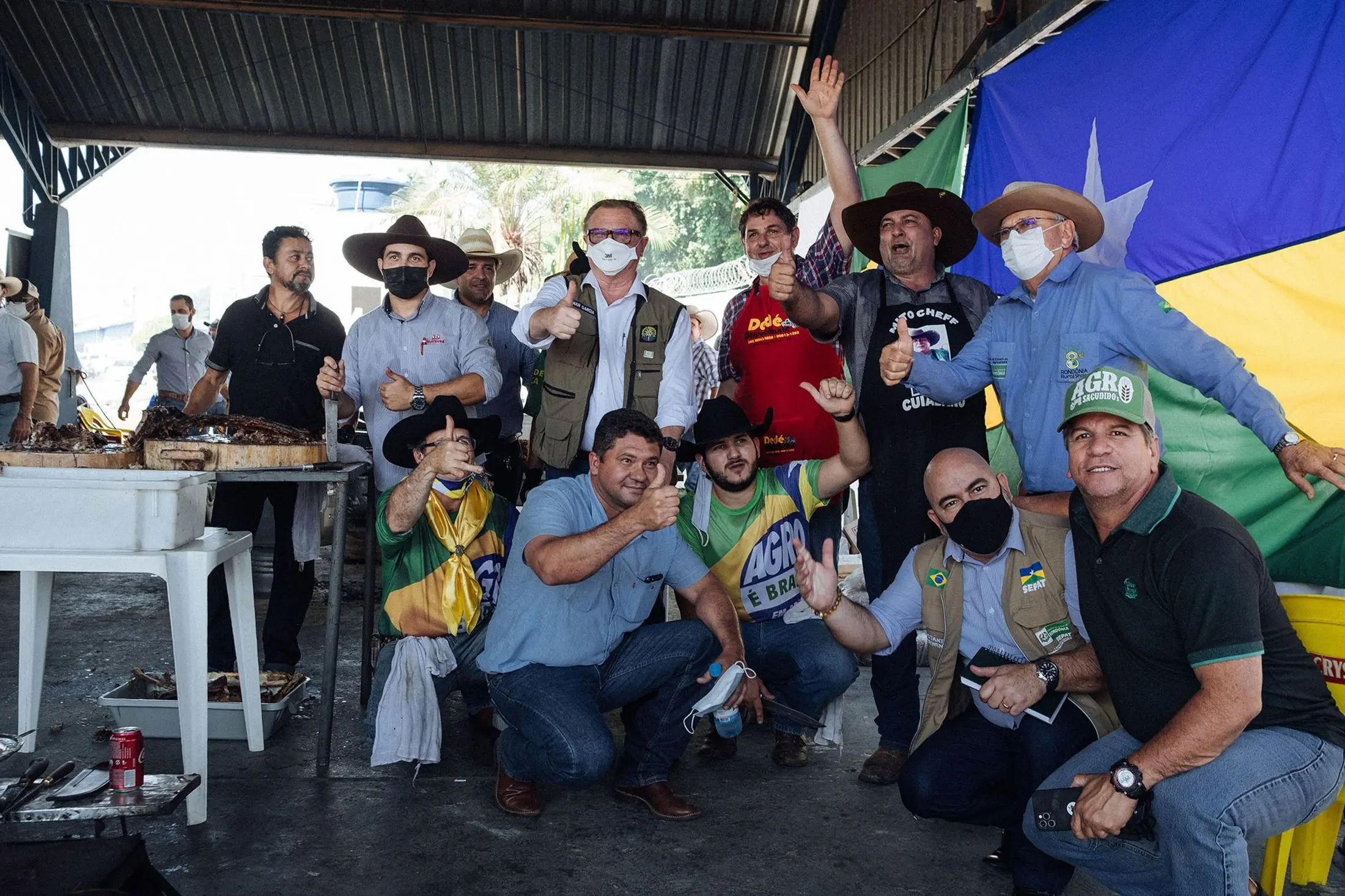
Central to the private-property argument is that owners will have the incentive to enforce Brazil’s forest code. The law requires property owners to preserve 80% of their land, while allowing for the rest to be deforested. In Barofaldi’s case, that’s more than 30,000 hectares of jungle he says he pays to maintain, employing guards to protect it from bands of invaders trying to tear it down. “I pay for security and the taxes on that land, which doesn’t earn me a cent of profit,” he says.
There had been an uptick in violent conflicts on private property, and a few days before the barbecue, the national guard had descended on Rondônia for a 90-day mission. Nabhan Garcia and his ranching backers draw distinctions when talking about who’s doing the land-grabbing. There’s a big difference, they say, between farmers and ranchers moving in on public land and leftist radicals targeting private property, whether titled or not. Nabhan Garcia was cited in a 2005 congressional investigation for alleged ties to militias that hunted down squatters on farms in his state, São Paulo. He denies the accusations and was never charged with a crime, but he vehemently defends the use of force when asked. “A person’s land is his life. It’s his family’s life,” he says. “If someone invades your property, you have the right to react and stop that invasion, even finish him off.”
About 167,000 claims for titles are awaiting an Incra decision. As many as 12% of them involve farms not currently allowed by law, making up 60% of the area being claimed. Almost 30% of the land shows no signs of use before 2018, meaning the law change isn’t about giving security to families who’ve been on the properties for decades, Rajão says. It’s about amnestying more recent and bigger invasions. Once Incra approves the title, the owner essentially buys it from the federal government. In a municipality in Para state, for example, a hectare from Incra costs as little as 46 reais. It’s worth more than 100 times that in the open market.
Barofaldi is requesting title to 470 acres of government land west of Porto Velho, an Incra database shows. Some 200 politicians in the Amazon have also filed paperwork for titles to public land, including a Rondônia state assembly member who voted for the Jaci-Parana bill. At least two of the outstanding claims are for properties inside national parks. One member of Brazil’s National Congress even listed an unregulated property in his electoral declaration.
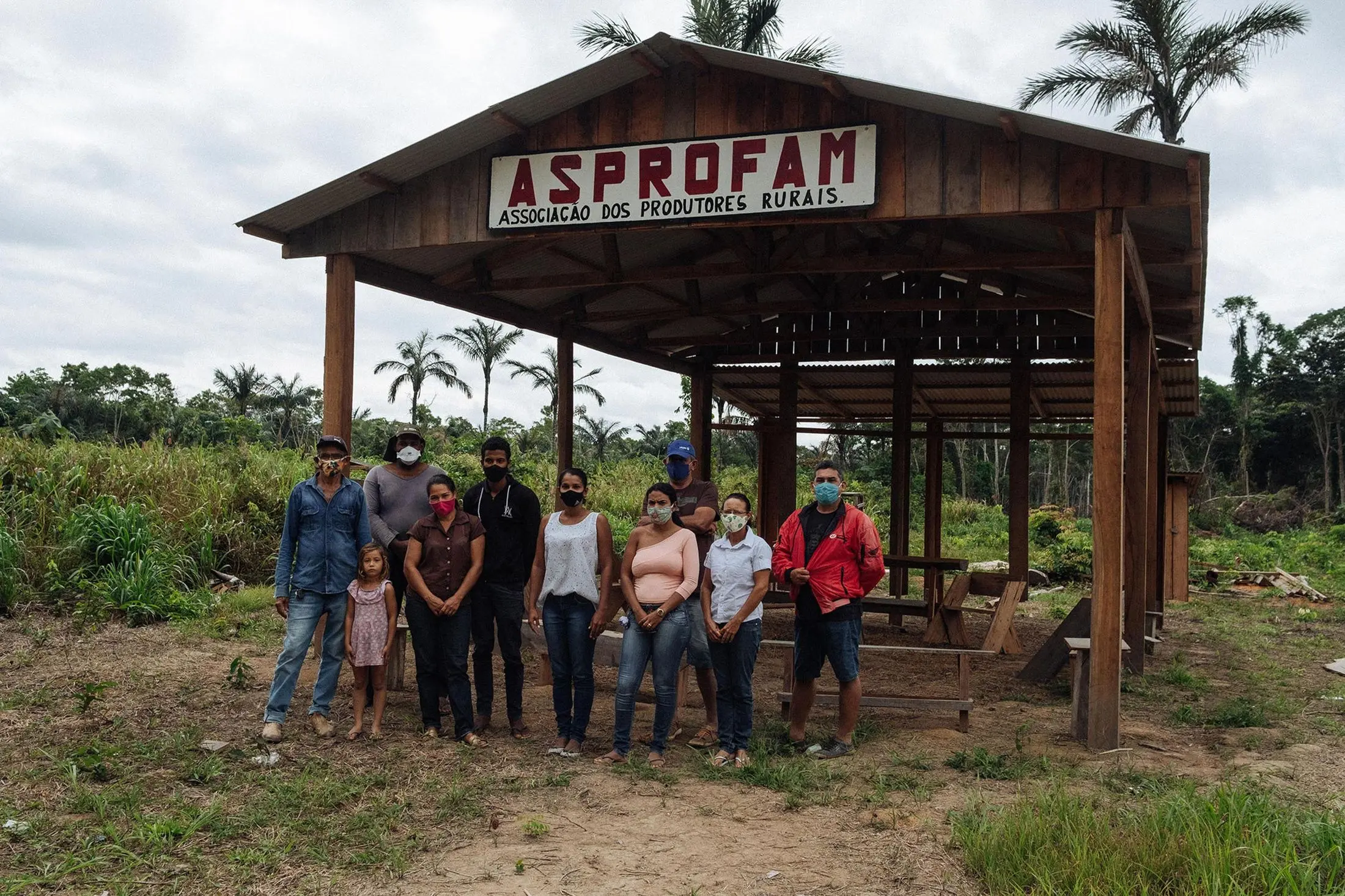
The analysis of title claims is far from complete, mainly because data on properties is so hard to come by. Bolsonaro’s government has used the pandemic as cover to clamp down on access to public information related to land grabs, and Rondônia state has been among the most aggressive in locking away its documents.
What is sure is that the destruction is accelerating. In recent years, Bolsonaro put the Ministry of Agriculture in charge of the environmental regulator, cut firefighting and management budgets, reversed plans to protect large swaths of indigenous lands, and proposed opening up indigenous lands to mining. Roughly 10,500 square kilometers of rainforest were destroyed in the first six months of 2021, on course to eclipse 2020’s 11-year high. A study released in July by Brazil’s National Institute for Space Research shows that parts of the Amazon where the burns are the worst have flipped into net carbon emitters, contributing to climate change rather than helping to limit it. Many of the land grabs go far beyond what even Bolsonaro’s administration has proposed pardoning. The thinking is that even though greenwashed titles for, say, a national park may not be in the pipeline now, it’s only a matter of time before they are. With no real consequence or enforcement, why not stake the claims now? “What’s astonishing is that these are self-confessed crimes,” Rajão says. “People go in and say, ‘I’m seizing this land,’ and they’re rewarded for it, because the lawmakers keep moving the line forward.”
Itamar Lopes Manoel walks a half-kilometer from the rutted dirt road along a rare patch of forest still standing in Jaci-Paraná. Manoel, who is 54, bought the 100-hectare terrain in 2005 for 1,200 reais from a man who had no right to own it in the first place. It was a deal sealed with a handshake and no documentation. He says he had no idea it was a state reserve when he arrived. But then again, no one ever told him to leave.
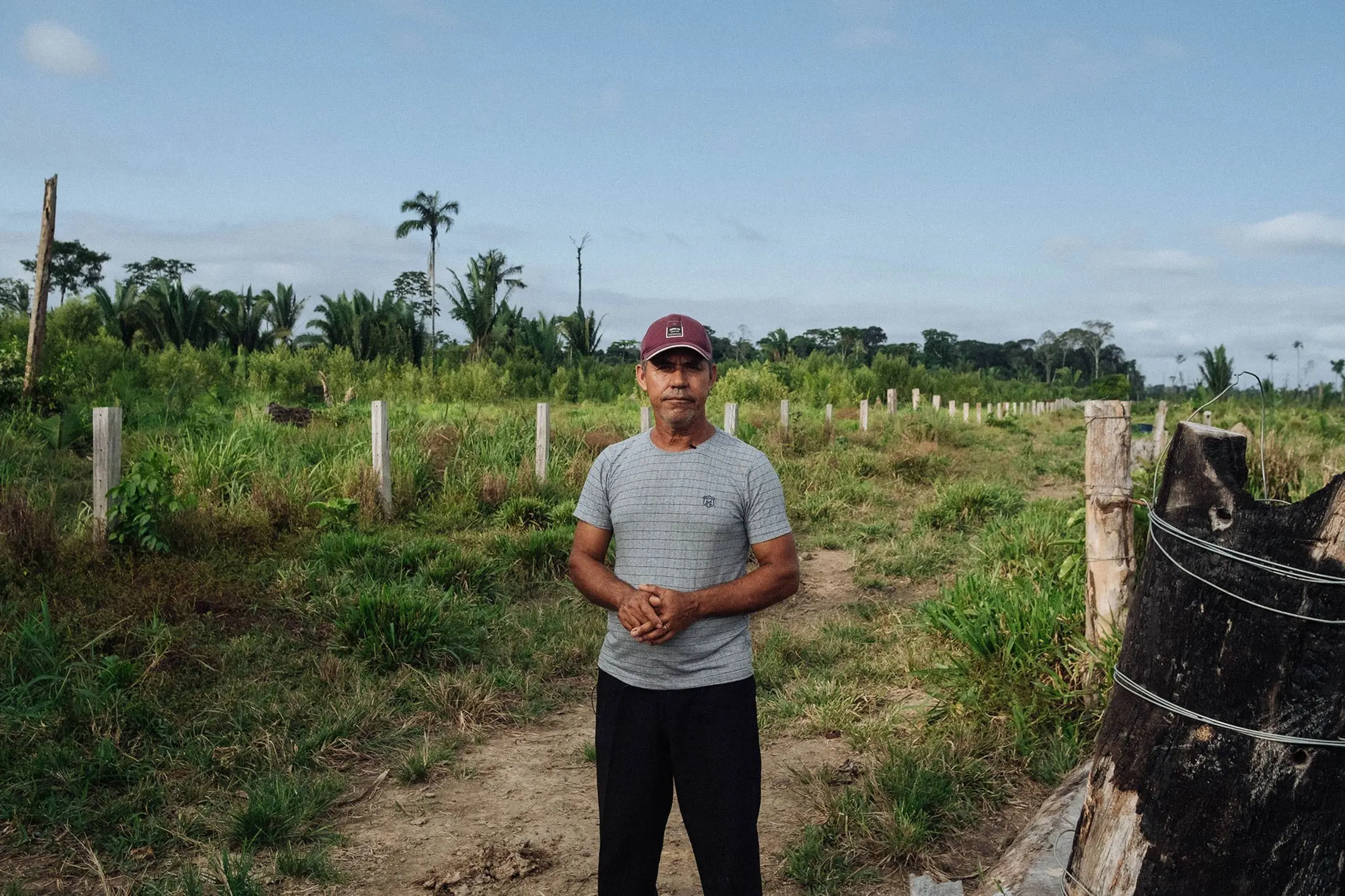
He’s cleared a small pasture, where his neighbor grazes cows for 25 reais a head per month, but his focus is on the forested part of his land. “This is where my dreams begin, right here,” Manoel says. There’s space for a grove of 3,000 cacao trees to earn him a good living, he figures, plus chickens, pigs, and milk cows for his family. He doesn’t want to do it in the typical way, by illegally clearing and burning it all (not least because he’d like to avoid getting fined by Ibama). But his dreams have been elusive. “They don’t give loans for cacao, only cattle,” he says. “And cattle can’t be produced in the jungle. Cacao, yes, but not cattle.”
Lawmakers pushing to develop the Amazon often say they’re trying to help people such as Manoel. But they’ve been saying that for decades, while inequality has grown worse. Without government programs to help people work the land sustainably, chances are Manoel will eventually clear-cut it all or abandon it. Already, in the eastern half of Jaci-Paraná, farms are being consolidated into industrial-size ranches. “Most small farmers end up selling to the big ones,” Manoel says. “We can’t survive. They can.”









